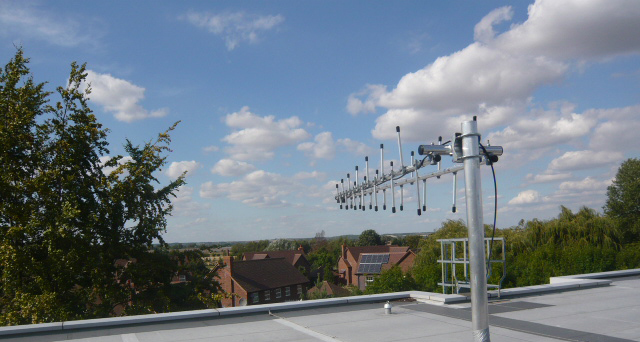

Ofcom has approved the use of white space technology in the UK following a number of successful trials and expects to see the first commercial applications appearing by the end of the year.
White space radio uses unused spectrum in the 700MHz band currently used for Digital Terrestrial Television (DTT) and wireless microphones, choosing particular frequencies which are not occupied in a given location because of the pattern of TV transmitters.
However because the availability of white space radio spectrum depends on location, power level and the time of day, Ofcom is maintaining a database on where the white spaces are and the power level that devices would need to be restricted to if they want to use them.
Pilots of white space technology have seen Internet access provided for ships and boats in the Orkney Islands, M2M-powered flood defences in Oxfordshire and Wi-Fi-like services at the University of Strathclyde.
Another trial has seen white space-powered video systems deployed at ZSL London Zoo to see how video streaming could be used to monitor and protect endangered animals in the wild.
Ofcom says it is looking to see if other bands can be used to support white spaces and says the UK Is set to become a leader in the field as it is the only European country to have released specific spectrum to support such applications.
“This decision helps ensure the UK takes a leading role in the development of innovative new wireless technology,” said Steve Unger, Ofcom acting chief executive. “It is also an important step in helping the UK’s wireless infrastructure evolve effectively and efficiently.”
“Ofcom is laying the foundations for industry to use database controlled spectrum sharing to deliver innovative new services to benefit consumers and businesses,” added Philip Marnick, Ofcom spectrum group director. “Spectrum is an important but limited resource, which is why we’re exploring new ways of unlocking its potential, while balancing the needs of different users.”
What do you know about the Internet of Things? Take our quiz!
SoftBank has agreed a funding deal that will see OpenAI being provided with up to…
Tesla sales have plummeted to lowest level in three years, as deliveries of new EVs…
New addition. Next generation foundation model, as Amazon Nova model launches to perform actions within…
Head of artificial intelligence research at Meta Platforms has announced she is leaving the social…
No decision yet, after media reports CK Hutchison was to spin off its global telecom…
Ahead of 5 April deadline, Trump is to hold White House meeting over possible investors…